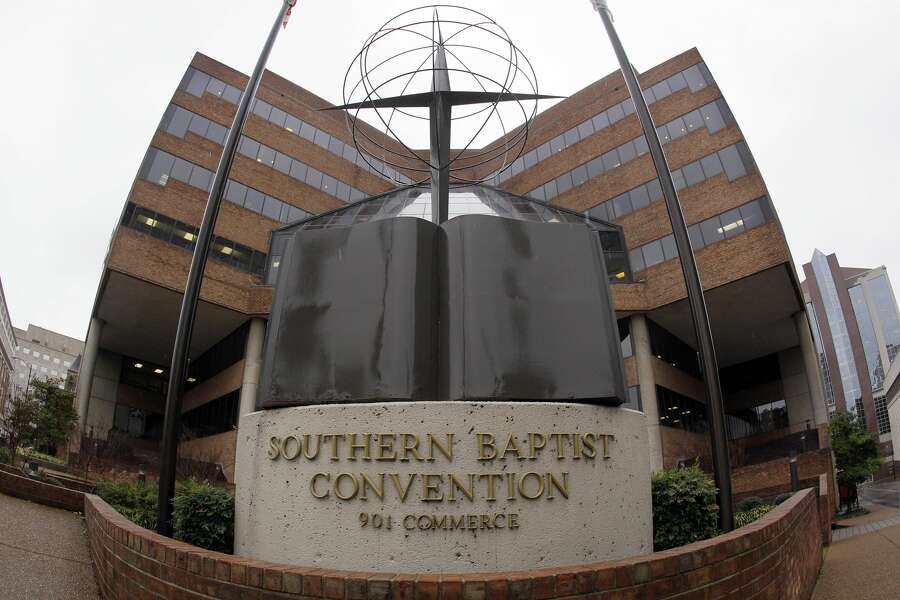The Southern Baptist Convention (SBC) is active in India and is headquartered in Gudivada, a city in Krishna district, Andhra Pradesh.
New Delhi: At least 380 church leaders, ministers, workers and volunteers associated with Southern Baptist Convention (SBC)—a US-based Christian denomination—sexually abused more than 700 victims, some of whom were as small as three years. Globally, the convention has around 51,000 churches.
The office bearers and followers of this denomination, for years, covered up these acts even as they kept a secret list of such offenders. This has emerged after the church leadership faced a sustained media campaign by a well-regarded quality newspaper, Houston Chronicle. The newspaper published a series of articles in 2019 which was based on six months of investigation. These brought out in public how followers were subjected to sexual abuse for decades. The church leadership, thereafter, commissioned an independent investigation which submitted its report last month.
The carefully researched and detailed report reconfirmed what Houston Chronicle had written about widespread sexual abuse and attempts to cover it up, and efforts to discredit survivors of child abuse who came forward. The Convention is active in India and is headquartered in Gudivada, a city in Krishna district, Andhra Pradesh. It is headed by Pandu Maddala. The Sunday Guardian spoke to Maddala over phone and email seeking his response on the queries mentioned below. Maddala confirmed that he was leading the church’s activities in India. The questions asked were: (1) Since when has the Southern Baptist Convention been active in India? (2) How many pastors, evangelists, and volunteers are associated with SBC in India? (3) Has any instance of sexual abuse been reported from India? (4) How many churches does SBC have in India?
The Sunday Guardian also reached out to John D. Wilke, Director of Media Relations, and Jonathan P. Howe, Vice President for Communications of the church, with a similar set of questions. No response was received from any of these individuals, despite Maddala promising that he will share his response.
As per the Facebook page of the church in India, in a post that was shared in October 2019 by Maddala, it had 600 church planters, pastors and evangelists “working at unreached places reach them with the gospel”. The said investigative report with 288 pages, dated 15 May, that was prepared by the Washington-based independent firm, Guidepost Solutions, included details about how the Southern Baptist Convention’s Executive Committee mishandled allegations of sex abuse, stonewalled numerous survivors and prioritised protecting the SBC from liability. The investigation began in October 2021, and submitted its report in May this year.
In response to this investigation, the church on 26 May released the secret list of hundreds of pastors and other church-affiliated personnel accused of sexual abuse. The 205-page database includes more than 700 entries from cases that largely span from 2000 to 2019.
As per the report by Guidepost Solutions, for almost two decades, survivors of abuse and other concerned Southern Baptists have been contacting the Southern Baptist Convention Executive Committee (EC) to report child molesters and other abusers who were in the pulpit or employed as church staff. They made phone calls, mailed letters, sent emails, appeared at SBC and EC meetings, held rallies, and contacted the press only to be met, time and time again, with resistance, stonewalling, and even outright hostility from some within the EC.
Over the years, the EC’s response to sexual abuse allegations was largely driven by senior EC staff members, particularly D. August “Augie” Boto, the EC General Counsel and later Interim EC President, as well as the SBC’s long-serving outside counsel–James Guenther, James Jordan, and the firm of Guenther, Jordan & Price (“GJP”). Their status and longevity in the SBC organization–Guenther had provided legal advice since 1966 and began in 1998 as Vice President for Convention Policy before becoming General Counsel in 2004–enabled them to control decisions about how the SBC-EC would deal with the increasing attention on church sexual abuse.
Their main concern was avoiding any potential liability for the SBC. As per the report, those who reported abuse were often ignored or told that the SBC had no power to take action. Guenther advised that EC staff should not undertake any action to elicit further information or details about reports of abuse, so that the EC does not come under a legal duty to take further action.
Baptist Press (“BP”), the EC’s communications arm, was also used to portray survivors in an unflattering light and mischaracterize allegations of abuse. For example, in March 2019, Jennifer Lyell, a senior executive at an SBC entity, was asked by executives at Lifeway and SBC entity heads to disclose her sexual abuse at the hands of her former seminary professor through a first-person account to be published in BP. Rather than publishing Lyell’s corroborated account as BP staff had originally drafted it, the account was changed to read as if Lyell was consensually involved with her alleged abuser. The article as published reported that Lyell alleged that she had a “morally inappropriate relationship” with her former seminary professor, making it appear that she engaged in a consensual sexual relationship with him. Lyell was, thereafter, subject to vicious attacks, including harsh and hurtful comments on Baptist Press Facebook–she was called a bitter jealous woman and an adulterer, and some suggested she should be fired. Supporters of the Baptists, many of whom were and remain strong supporters of Donald J. Trump, say that such incidents should not overshadow the good work done worldwide by the Church over the years. The response from Maddala, Wilke and Howe concerning such reports remains awaited.

